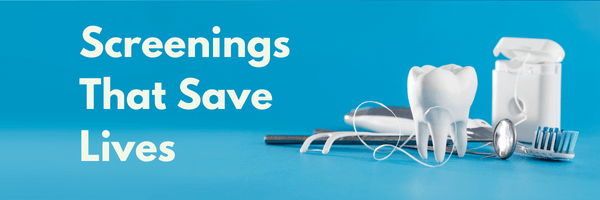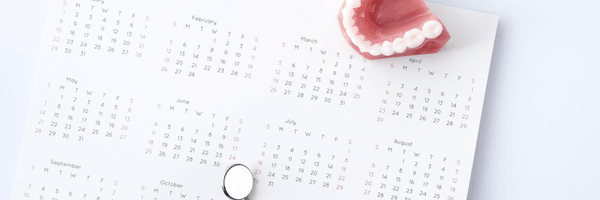.png)
3 Things I Wish I Knew When Starting My Dental Career
Posted March 15, 2023
Many of us struggle to navigate adult life successfully when we’re young. Hindsight is 20/20, and it’s only after we have gained and learned from more experiences in adult life that we realize (and often regret) the impacts of the choices we made when we were younger.
It has been 10 years since I graduated from dental hygiene school, yet I still question some of my early life choices, especially regarding my long-term career goals. Life can bring unexpected changes, and planning for the unexpected is never too soon. If I could go back in time 10 years ago and tell my younger self to start prepping for the future, these are the 3 things I would prioritize above all others.
1. Always Participate in 401k Plans
A decade ago, I was a hard sell that opening a retirement fund was necessary at 22. I had only just started working at my first job and had about $500 in my savings account. If I hardly had enough money for an emergency, why would I want to put money in an account I can’t access until I’m 65? I can easily answer this question today, but in the past, it only left me confused and in denial. So, I wish I could go back in time and take advantage of the benefits offered. I could have set my future self up with a few more years of financial stability.
Retirement Savings Regret
In fact, not saving earlier for retirement was named the biggest financial regret by 42 million Americans, according to a new survey from Bankrate.com. In the survey, Bankrate reports 75% of Americans say they “have financial regrets, with 18% of that [group] saying not saving for retirement early enough being their biggest regret.”
The more you invest and the earlier you start, your retirement savings will have much more time and potential to grow. By saving and investing in a retirement account earlier, you’ll likely become self-sufficient and have more control over your life. You don’t want to depend on Social Security, Medicare, Medicaid, or relatives to care for you in retirement. They’re all unreliable sources that you can’t control.
401K Match
If your dental office offers a 401K plan, they may also offer a 401K match! How this works: your employer will match your contribution toward your 401K up to a certain amount. This could essentially double your contribution! Don’t make the same mistake I did, and only think about your short-term goals. Your older self will thank you while you sip your morning coffee overlooking the water in your beach retirement community you worked and saved so far for.
2. Take Ergonomics Seriously
Ergonomics was drilled into my head during dental hygiene school. We had specialized instructors attend the clinic just to check our loupe magnifications, pull our shoulders back, and adjust our chairs and knees. Our instructors also made surprise grip checks as we scaled to ensure we weren’t gripping the handle too tightly with our fingers and causing muscle fatigue or a hygienist’s biggest fear, carpal tunnel syndrome.
I knew all these risks and how to avoid them to the best of my ability, but why, once I graduated, did I throw them out the window? I resorted to hunching my back to use direct vision on the maxillary linguals and crossing my legs while I scaled anteriors. Eventually, I hung up my expensive loupes to use basic eyewear goggles. I created all these bad habits that eventually, after only three years into practice, started causing me pain. I wish I had taken ergonomics seriously instead of relying on my young body to handle the abuse.
Put the Health of Your Body First
It is never too late to make ergonomics a priority in your career. When attempting to practice ergonomically, most hygienists need to adopt a radical change in mindset. They must put the health of their body first when entering the operatory and evaluate how they can adjust their provided workspace to support them. No more adjusting yourself to the patient’s desires. They are only briefly in the chair while you continuously work the rest of the day.
Proper Patient Positioning
A common mistake by dental hygienists is not adjusting the patient chair or the patient depending on the area they’re treating. Taking the time to position the patient’s chair and patient properly will significantly reduce fatigue and pain. In addition, proper patient positioning will allow greater adoption of neutral posture and reduce harmful body movements, such as bending and twisting, that increase the likelihood of musculoskeletal disorders.
Stretching is Essential
Also, consider the placement of your equipment and instruments to decrease the need for reaching and leaning. Practicing dental hygiene involves holding static, awkward postures for extended periods. Stretching before, during, and after work is essential, so starting a stretching routine early in your career will encourage healthy blood flow back into the muscles. Most hygienists incorporate stretching before or after work but not during work, likely due to time constraints. It has been shown that taking 20- to 30-second micro-breaks, every 20 minutes helps reduce the pain and fatigue experienced by dental professionals.
These small but critical steps can increase the longevity of your career. I will again prioritize ergonomics to ensure a healthy body and financial stability, knowing I am healthy enough to practice clinical hygiene for decades. If you need a refresher on ergonomics, there are numerous CEs available on this topic!
3. Purchase Disability Insurance
We often think we are invincible to severe injuries when we are young. However, I also get a little wiser every year I get a little older. I realize how incredibly lucky I was that I did not suffer an accident while I was young and single that would render me unable to work. What if I broke my wrist on a ski trip and couldn’t work for an extended time? How would I have paid my bills? Even though I am now married and can rely on my husband to support me, to an extent, in case of an emergency, it is still a wise financial decision to purchase short-term disability insurance.
What Short-Term Disability Is
Short-term disability is an income replacement benefit that provides a percentage of pre-disability earnings weekly when employees are out of work on a disability claim. It typically covers off-the-job accidents and illnesses that workers’ compensation would not cover. Signing up for a disability policy can ensure you can pay the bills and not lose the home you love so much!
There are numerous types of disability insurance to choose from, so talking with an insurance agent will help you make the most informed decision and the best option for your situation and life. Unfortunately, dental hygienists are prone to injury from muscle fatigue and pain. Many hygienists hang up their scalers earlier than expected because of this, which is why planning for unexpected injuries and surgeries is crucial. This is another step to help ensure future stability!
It’s Never Too Late to Take Care of Ourselves
We are never too young or old to plan for our future selves. I hope you can learn from my mistakes and take the advice shared to ensure a safe and secure career and life for yourself as a dental clinician!
References:
Stephanie Botts, BSDH, RDH, CEAS ( September 2021) Common Ergonomic Errors and Solutions for Dental Hygienists. RDH Magazine, https://www.rdhmag.com/ergonomics/seating/article/14210339/common-ergonomic-errors-and-solutions-for-dental-hygienists
We connect and educate more than 900,000 job seekers in the U.S. and Canada to build better places to work through teams that excel.




.png)



.png)
